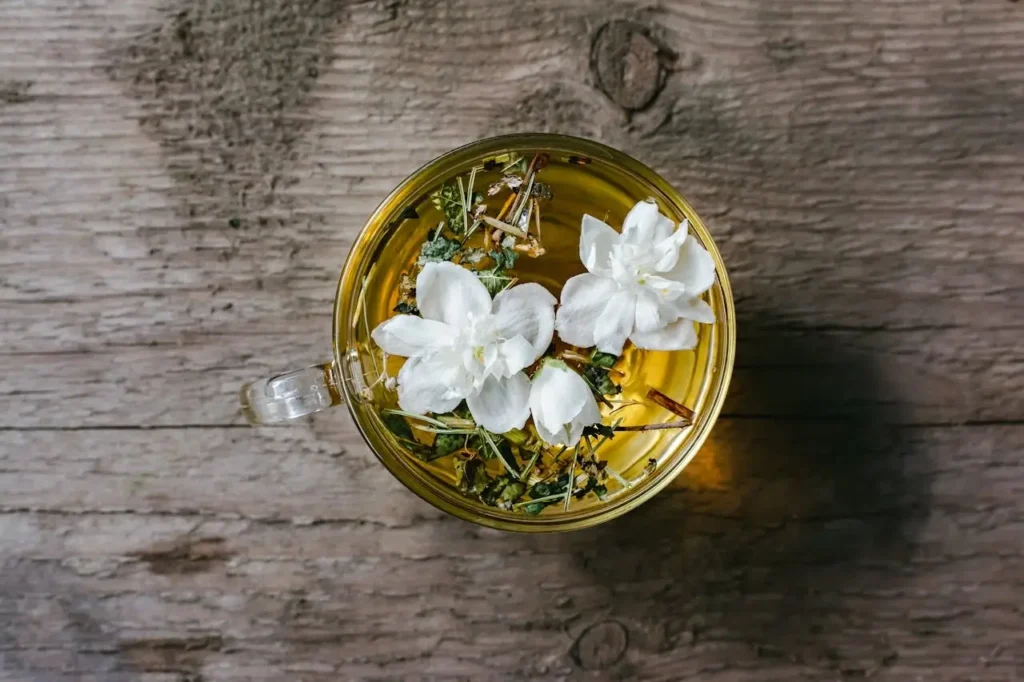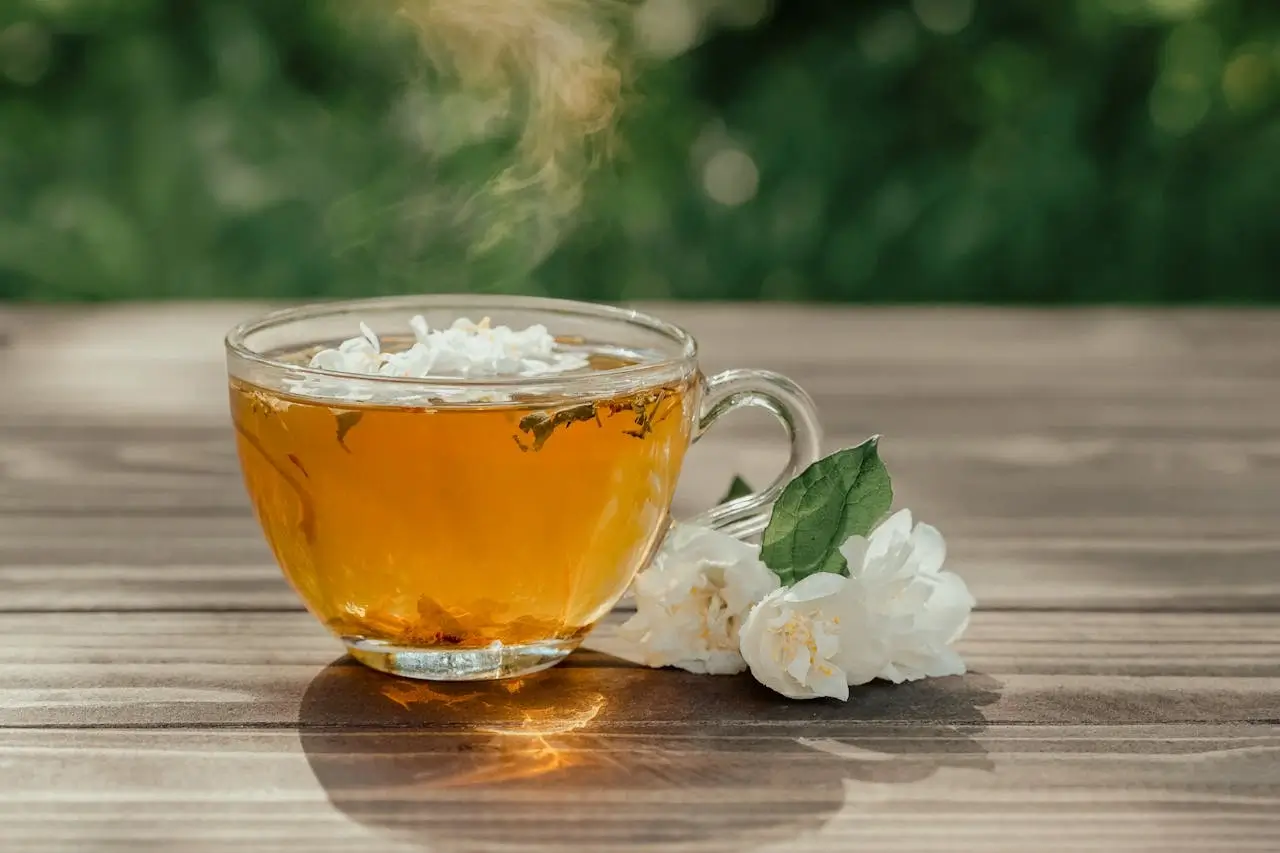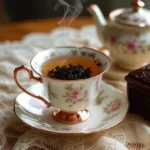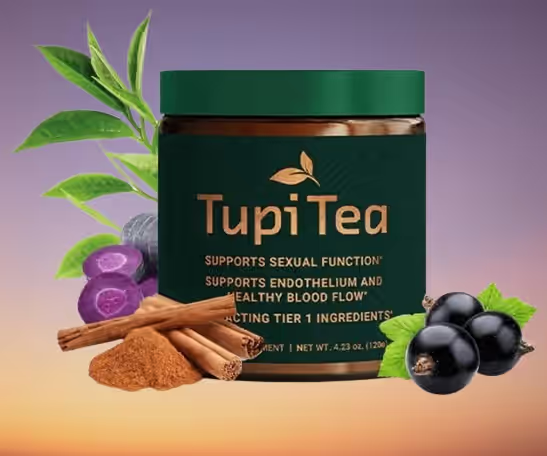Table of Contents
Jasmine tea is a popular beverage, loved for its delicate aroma and soothing effects. However, if you’re conscious about your caffeine intake, you might be wondering: Does jasmine tea have caffeine? This question is especially important for those looking for a calming tea experience without the jitters. In this article, we will explore not only the caffeine content of jasmine tea but also answer two key questions: what does jasmine tea taste like and is jasmine tea good for you.
Does Jasmine Tea Have Caffeine?
The short answer is yes, jasmine tea does have caffeine, but the exact amount depends on the type of tea used as its base. Jasmine tea is typically made by infusing jasmine blossoms with green, black, white, or oolong tea leaves. Since these base teas come from the Camellia sinensis plant, they naturally contain caffeine. Here’s a breakdown of caffeine levels based on the type of tea:
- Jasmine Green Tea: About 20-30 mg of caffeine per cup.
- Jasmine Black Tea: Roughly 40-70 mg of caffeine per cup.
- Jasmine White Tea: Around 15-20 mg of caffeine per cup.
- Jasmine Oolong Tea: Typically contains between 30-50 mg of caffeine per cup.
Compared to a cup of coffee, which contains 95 mg of caffeine on average, jasmine tea provides a much milder caffeine hit. So, while it does contain caffeine, the levels are significantly lower than other caffeinated drinks.
👉 Indulge in premium Jasmine Tea for a moment of tranquility 👈
What Does Jasmine Tea Taste Like?
One of the most compelling aspects of jasmine tea is its unique taste. What does jasmine tea taste like? is a common question, especially for those new to floral teas. The flavor is often described as delicate and refreshing, with a sweet, floral aroma that makes it stand out from other teas.
Here are some key flavor notes to expect:
- Floral Sweetness: Jasmine tea has a naturally sweet undertone due to the infused jasmine blossoms. It’s not an overpowering sweetness but rather a subtle, lingering flavor that complements the base tea.
- Refreshing and Light: Jasmine green and white teas, in particular, have a light and refreshing quality, making them ideal for a calming tea experience.
- Earthy and Nutty: Jasmine black and oolong teas provide a more robust, earthy flavor, with the jasmine floral notes adding complexity to the tea’s overall taste.
- Aromatic: The aroma of jasmine tea is often considered just as important as its flavor. The scent of jasmine blossoms enhances the overall tea-drinking experience, making each sip a sensory delight.

Whether you’re drinking jasmine tea hot or iced, its flavor remains elegant and sophisticated, appealing to both seasoned tea drinkers and those new to tea.
Is Jasmine Tea Good for You?
Now that you know does jasmine tea have caffeine and what does jasmine tea taste like, let’s dive into another crucial question: is jasmine tea good for you? The health benefits of jasmine tea largely depend on the type of tea used as the base, but all jasmine tea blends carry certain advantages.
1. Rich in Antioxidants
Jasmine tea, especially when made with green tea, is loaded with antioxidants like catechins. These compounds help neutralize harmful free radicals in your body, reducing oxidative stress and lowering your risk of chronic diseases like heart disease and cancer.
2. Supports Weight Loss
The caffeine and catechins in jasmine tea can help with weight loss by boosting your metabolism. Green tea, in particular, has been shown to increase fat burning and improve physical performance. A cup of jasmine green tea can enhance your body’s ability to burn calories more efficiently, especially when paired with regular exercise and a balanced diet.
3. Promotes Heart Health
Drinking jasmine tea regularly may help reduce the risk of cardiovascular diseases. The antioxidants in jasmine tea help lower LDL cholesterol levels (the “bad” cholesterol) and improve blood circulation. The polyphenols in the tea are also linked to a reduction in inflammation and overall heart health improvement.
4. Improves Mental Alertness
While jasmine tea does contain caffeine, the amount is lower than coffee, making it a gentler option for staying alert and focused. The L-theanine in the tea helps balance the effects of caffeine, promoting a state of relaxed alertness. You’ll enjoy an energy boost without the usual jitters or crashes associated with coffee.
5. Reduces Stress and Anxiety
The soothing aroma of jasmine tea has been shown to have calming effects. Inhaling the fragrance of jasmine blossoms can lower heart rates and reduce stress levels, making jasmine tea an ideal choice for winding down after a long day. This tea acts as a natural stress reliever, helping to improve overall mental well-being.
6. Enhances Skin Health

Thanks to its antioxidant and anti-inflammatory properties, jasmine tea can improve skin health. Regular consumption may help reduce signs of aging, such as wrinkles and fine lines, by protecting the skin from oxidative stress. Additionally, jasmine tea can help soothe skin irritations and conditions like eczema and acne when applied topically or consumed regularly.
👉 Taste the best Jasmine Tea and embrace its fragrant allure 👈
How to Brew Jasmine Tea for Maximum Benefits
To enjoy the full health benefits and flavor profile of jasmine tea, it’s essential to brew it correctly. Here’s a simple guide:
- Boil Water: Heat water to about 175°F (80°C) for jasmine green or white tea, or to a full boil for jasmine black or oolong tea.
- Steep Tea: Add 1 teaspoon of loose jasmine tea or 1 tea bag to the hot water. Steep for 2-4 minutes depending on the strength you prefer.
- Strain and Enjoy: Remove the tea leaves or bag, pour into a cup, and enjoy the floral aroma before sipping.
Remember not to over-steep, as this can make the tea bitter.
Conclusion
In conclusion, does jasmine tea have caffeine? Yes, but the caffeine content varies depending on the type of tea used. Jasmine tea offers a delightful, floral taste, and its health benefits make it an excellent addition to your daily routine. From aiding in weight loss to reducing stress and improving heart health, jasmine tea is more than just a fragrant beverage; it’s a drink with powerful health benefits.
If you’re looking for a delicious, mildly caffeinated drink with a host of health advantages, jasmine tea is a fantastic choice. Whether you enjoy it in the morning for a gentle energy boost or in the evening to unwind, jasmine tea offers something for everyone.


![Jasmine Tea vs Green Tea Benefits: Which Gives Better Health Results? [2025] jasmine tea vs green tea benefits](https://www.goteaworld.com/wp-content/uploads/2025/09/jasmine-tea-vs-green-tea-benefits-150x150.webp)










